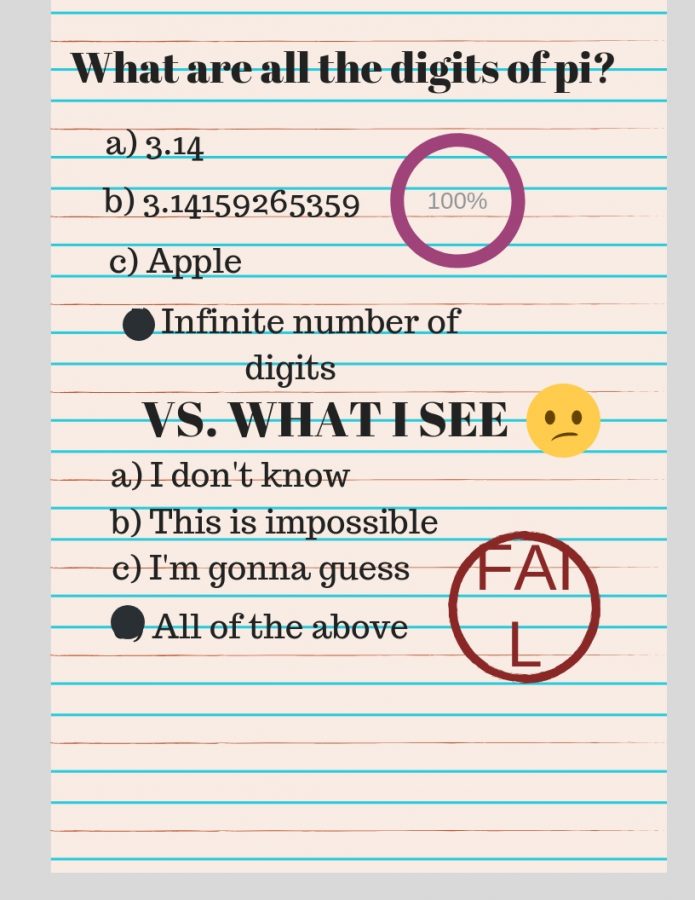Test scores should not define future
2020 is the year I graduate, the year I pack up all my bags, and the year I begin my journey elsewhere. But 2018 is the year I prepare myself to choose where I want to begin that journey.
This is the year I visit college counselors, guidance counselors and potential schools. But it’s hard to enjoy this momentous moment of exploration because the social media posts haunt me.
Once students get into college they post, they post on Facebook. Kids post things like, “Harvard University Class of 2023,” while Naviance reads “lowest ACT: 32” and “Lowest SAT: 1440.” Don’t get me wrong I am excited for my classmates but I can’t help but let my blood get cold. To get into a top school like Harvard, I acknowledge that their ACT and SAT scores had to be top mark but I would like to think that one test score doesn’t dictate my entire future.
Although some schools don’t mandate the submission of exam scores, most colleges and universities do. This means students who may not be the best test takers face a distinct disadvantage and extra time isn’t going to remedy this obstacle entirely.
I began thinking about the SAT’s and ACT’s towards the end of my sophomore year. Both tests included math that I had not yet learned. So, when I sat down to take practice tests, the pages looked like complete gibberish.
I watched kids who already completed the Algebra 2 course and were on their way up to precalculus and calculus. They flipped through the pages like it was a breeze, while I sat there circling random answers. After two classes, I dropped out.
I am at a disadvantage because I have to take the same test as other students in higher math levels, and no matter how much effort I put into taking these tests, nothing is going to change other than my frustration levels.
A potential solution to this issue is to follow the lead of schools like the University of Chicago. In 2018, this university announced that they would no longer require test scores for undergraduates. The Vice President and Dean of Admissions at the University of Chicago thought that they were spreading the wrong message. He didn’t want to suggest that these tests were what identified each student. He believed other factors were more valuable to consider when selecting future students..
If more colleges were test optional, it would allow all students a more equal opportunity, and would not favor only students whose abilities fit the narrow and specific skills to which the ACT and SAT tests cater.

Coming into her third year at Staples, Mia Daignault ’20 decided to further pursue her passion for writing by joining Inklings. She was inspired to take...


















































